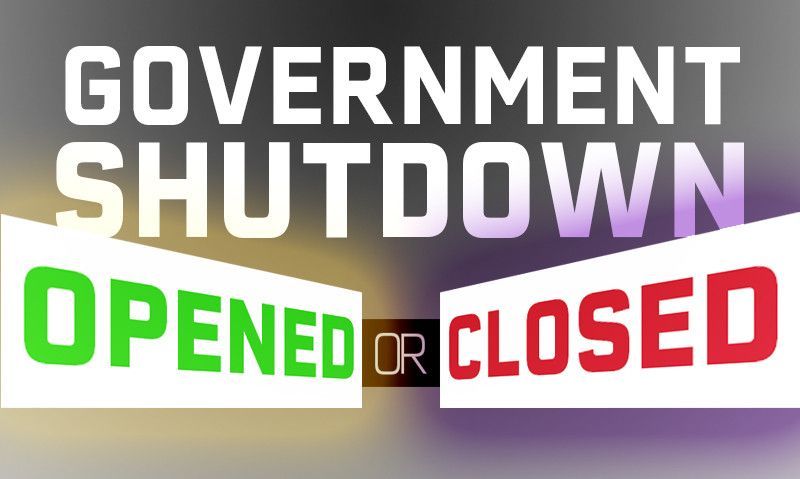
What’s affected by the government shutdown
During an anticipated government shutdown, due to start Oct. 1 unless Congress acts, critical federal government functions would continue but some important services would be paused.
Of critical importance to the nation and The American Legion is that all members of the military would continue their duties, though they would not receive paychecks. (Earlier this week American Legion National Commander Dan Seehafer demanded Congress find a solution to ensure that servicemembers would be paid during a shutdown.)
Additionally, hundreds of thousands of civilians in the Department of Defense (DoD) would be furloughed, affecting how the department manages its affairs globally. That includes recruiting new members, which has already been problematic for the service branches.
Here is an overview of how Department of Veterans Affairs (VA) services, as well as other DoD operations, would be affected — if at all — if the government shuts down.
VA services and operations
“We at VA are preparing for all contingencies, including the possibility that a lapse in funding could occur. A lapse would mean that certain Government activities would cease due to a lack of appropriated funding, and that designated pre-notified employees of this agency would be temporarily furloughed. We’ve prepared a contingency plan to execute an orderly shutdown of activities that would be affected by such a lapse. After the lapse ends, furloughed and excepted employees will receive retroactive pay for the furlough period as soon as possible,” according to a statement from the Deputy Secretary.
Specifically, services that will continue:
• Veteran medical care and critical services within the Veterans Health Administration (VHA) will continue, as they are financed with other-than-annual appropriations.
• The Veterans Benefits Administration (VBA) will continue various benefit functions, such as Education Benefit Claims processing and payments, insurance processing, loan guaranty programs, Veteran Readiness and Employment payment processing, VBA National Call Centers (except for Education), Compensation and Pension Claims processing and payments, Decision Review Operations Centers and management.
• The National Cemetery Administration (NCA) will continue to inter veterans and eligible family members, schedule burials and determine eligibility, process applications for headstones and markers, and update electronic files to ensure timely termination of benefits and next of kin notification of possible entitlement to survivor benefits.
• The Board of Veterans’ Appeals (BVA) will continue to render appellate decisions on veterans’ benefits cases and hold hearings to consider arguments and evidence related to those cases.
• VA compensation and pension benefits and education benefits are funded with other-than-annual appropriations, and the processing of appeals related to the timely and accurate payment of these entitlement benefits to or on behalf of veterans and their dependents is necessary by implication.
• The Veterans Experience Office (VEO) will maintain call center operations for MyVA411 and the PACT Act Contact Center as necessary to prevent disruption to mandatory VA benefit programs and to protect the health and safety of veterans relying on accessible health care through VHA.
Specifically, services that will be paused:
• Certain VBA functions, including the Education Call Center (the GI Bill Hotline: 888-GIBILL-1 or 888-442-4551); The Native American Veterans Direct Loan program (NADL) and the Vendee loan program which offers direct loans will cease. Veteran outreach to include Veteran Readiness and Employment (also known as Chapter 31 or VR&E) and Personalized Career Planning and Guidance (PCPG), or VA Chapter 36 will be suspended.
• Permanent headstone or marker installation by NCA employees; grounds maintenance (mowing, trimming, mulching or other landscape management); processing of new Presidential Memorial Certificates (PMC) or pre-need applications; and awarding of new grants as part of the Veterans Cemetery Grant Program.
• VA will close its public-facing regional offices.
DoD personnel
The troops will continue to serve our nation but will not receive their pay unless Congress passes last-minute legislation to ensure they continue to receive a paycheck, something that has been introduced in both the House and the Senate but not yet voted on.
Essential DoD civilian employees would also have to continue working without pay. About half of the Pentagon’s civilian workforce that handle areas such as recruiting and global affairs would be furloughed.
The military is automatically guaranteed pay — and would receive any backpay once a shutdown ends — but money cannot be dispersed until there is an agreed upon spending bill. If the government shuts down Oct. 1, the first payday that would be missed would be Oct. 13. Federal contractors would not receive backpay.
DoD military families
Servicemembers, especially those with young families, will face challenges if there is a shutdown.
"A shutdown would be detrimental for the department," Deputy Pentagon Press Secretary Sabrina Singh said earlier this week. "Troops would go without pay. Military families would be impacted, of course. For folks that are not getting paychecks, that impacts how and when [they] can buy groceries, child care, all of these things. We're hoping that Congress can reach a deal to avert a shutdown. But we are planning for that or taking steps to plan for that, should a shutdown occur."
Commissaries will be closed on most bases in the continental U.S. Others overseas and in certain remote U.S. locations where no other sources of food are reasonably available for military personnel would remain open.
DoD operations
While servicemembers will continue safeguarding our nation and overseas interests, military training is expected to be compromised. The Pentagon will still be able to make purchases and fund new technology to maintain defense, however, a shutdown would create a lag time in doing so.
